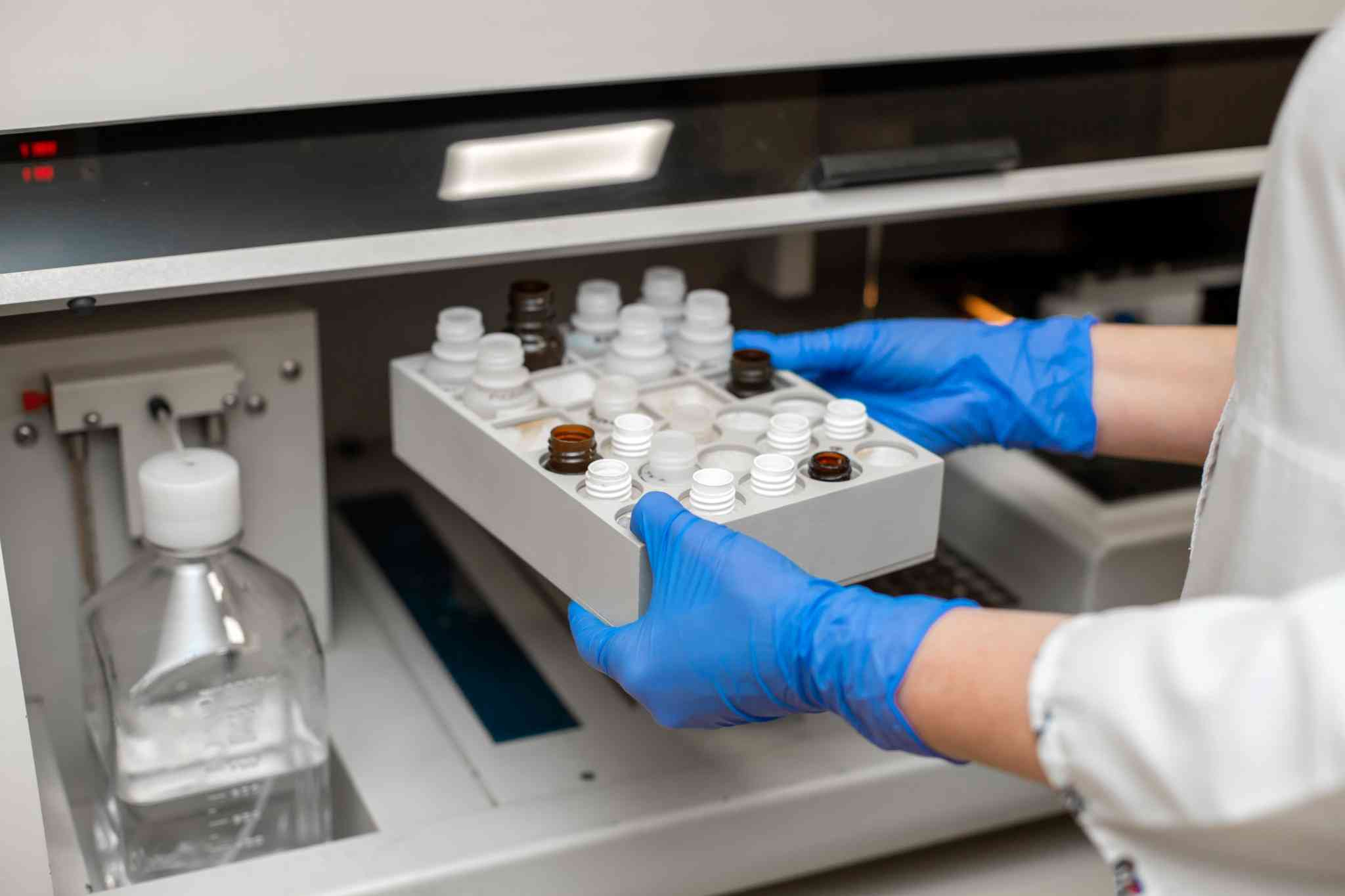By Jillian Foglesong Stabile, MD, FAAFP, DABOM
Monitoring your blood test results is an important part of maintaining overall health, and one marker that sometimes raises questions is alkaline phosphatase (ALP). If your ALP blood test shows low levels, you might wonder what that means and whether it requires medical attention. Understanding the significance of low alkaline phosphatase can help you take proactive steps toward better health.
What Is Alkaline Phosphatase (ALP)?
Alkaline phosphatase (ALP) is an enzyme found throughout the body, with the highest concentrations in the liver, bones, kidneys, and digestive system.[1] Though the exact function of ALP is not known, ALP plays a crucial role in breaking down proteins and is particularly important for liver and bone health.[2] Healthcare providers often order an alkaline phosphatase blood test to help diagnose liver conditions, bone disorders, or other underlying health issues.[1] This level is frequently present on a comprehensive metabolic panel.
When you have your ALP levels tested, the results can provide valuable insight into how well your liver and bones are functioning. Both high and low ALP levels can signal health concerns. This article will discuss the alkaline phosphatase blood test, specifically what low levels mean for your health.
What Are Normal and Low Levels of ALP?
Typical reference ranges for ALP vary slightly depending on the laboratory, but a general normal range is approximately 44 to 147 international units per liter (IU/L).[2] Factors like age, sex, pregnancy status, and fasting before the test can affect ALP levels.[1]
When ALP levels fall below the normal range, it’s known as low alkaline phosphatase, or hypophosphatasia if associated with a specific genetic condition.[3] Mild decreases may be harmless, but significantly low or persistent ALP levels can indicate an underlying health issue.
There are common factors that affect ALP levels [1,2]:
- Age: Children and teenagers typically have higher ALP levels due to bone growth.
- Sex: Men may have slightly higher ALP levels than women.
- Fasting: Extended fasting before a test can sometimes cause lower ALP readings.
- Pregnancy: ALP levels can rise during pregnancy due to placental ALP production.
What Does It Mean When Your ALP Level Is Low?
Low ALP levels can stem from a variety of causes. Some are relatively benign, while others may indicate serious health conditions.
Common Causes of Low ALP Levels
There are several potential causes for low ALP levels. Some of these include [2-4]:
- Hypophosphatasia (HPP): This is a rare genetic disorder where mutations affect the ALPL gene, leading to defective bone mineralization.
- Vitamin Deficiencies: Low levels of zinc, magnesium, vitamin B6, or vitamin D can result in decreased ALP activity.
- Endocrine Disorders: Conditions like hypothyroidism or adrenal insufficiency can lower ALP levels.
- Severe Anemia: This can occur particularly in cases of chronic malnutrition or chronic illness.
- Malnutrition and Eating Disorders: Poor nutrient intake affects enzyme production.
- Wilson’s Disease: This is a rare inherited disorder causing copper buildup in the body.
Your healthcare provider can offer you insight on whether these conditions could contribute to a low ALP or whether another cause may be to blame. Your healthcare provider can also guide you as to what additional tests are needed to figure out what may be causing the low ALP level.[5]
Symptoms Associated With Low ALP
There are many potential symptoms associated with low ALP, including [3]:
- Weak or brittle bones
- Frequent fractures
- Dental problems (e.g., premature tooth loss)
- Muscle weakness
- Fatigue
In some cases, low ALP might not cause any noticeable symptoms but still signal an underlying issue that requires medical evaluation.[1]
What Health Conditions Are Linked to Low ALP?
Low ALP levels can be a clue to several health conditions [2,3]:
- Hypophosphatasia (HPP): The most direct and serious association
- Malnutrition: Inadequate intake of essential nutrients that impacts liver and bone enzyme production
- Wilson’s Disease: Copper buildup that damages the liver and decreases ALP production
- Endocrine Disorders: Hypothyroidism and adrenal insufficiency, which interfere with normal ALP regulation
- Certain Cancers: Rarely, specific cancers, including some blood cancers, leading to low ALP levels
Understanding whether the origin of the low ALP is from the liver or the bones often requires additional tests, such as ALP isoenzyme testing.[2]
Can Low ALP Levels Indicate Serious Issues?
In many cases, mildly low ALP levels do not signify serious problems. However, very low ALP can indicate significant health conditions, especially if accompanied by symptoms like bone pain, fractures, or fatigue.[3]
When Low ALP Is Concerning
Low ALP may be a temporary condition or may be a sign of something more concerning. A low ALP level may be concerning when [2,3]:
- Persistent low ALP levels across multiple tests
- Presence of associated symptoms (bone pain, weakness, dental problems)
- Known history of genetic or metabolic disorders
These findings may prompt your healthcare provider to recommend additional testing.
What Level of Alkaline Phosphatase Is Dangerous?
There is no exact threshold universally agreed upon, but extremely low levels (e.g., less than 20 IU/L) typically warrant further evaluation to rule out serious causes like hypophosphatasia or severe malnutrition.[2,3]
How to Address and Support Low ALP Levels
The approach to managing low ALP depends on the underlying cause. Common strategies include:
Address Nutrient Deficiencies
Some of the nutritional deficiencies that may be related to low ALP levels include [4]:
- Vitamin D: Supplementation may help normalize ALP levels if deficiency is present.
- Zinc and Magnesium: Adequate intake supports enzyme function.
- Vitamin B6: This is essential for numerous enzymatic reactions, including those involving ALP.
Manage Underlying Medical Conditions
If you have underlying medical conditions, addressing these conditions may help improve your underlying medical conditions, including [2,3,6]:
- Treat hypothyroidism with appropriate thyroid hormone replacement
- Address liver-related issues in consultation with a healthcare provider
- In rare cases, manage hypophosphatasia with specialized treatments like enzyme replacement therapy
Dietary and Lifestyle Support
Maintaining a healthy diet and lifestyle can help improve many biomarkers, including ALP. Some tips include [2,4,6]:
- Eating a balanced, nutrient-rich diet
- Maintaining a healthy weight and active lifestyle
- Avoiding excessive alcohol consumption, which can impair liver function and enzyme production
ALP vs. ALT: Understanding the Difference
It’s common for people to confuse ALP and alanine aminotransferase (ALT) since both are liver-related enzymes measured during routine blood panels, and they sound similar.[6] These two enzymes are different. Here are some of the key differences [1,2,6]:
- ALP (Alkaline Phosphatase): Linked primarily to the liver, bones, and bile ducts
- ALT (Alanine Aminotransferase): Primarily a marker of liver cell injury
While low ALP levels point toward bone or metabolic issues, abnormal ALT levels typically suggest liver damage or inflammation.[6] Understanding the distinction helps in interpreting test results accurately.
Frequently Asked Questions
What Does It Mean When Your Alkaline Phosphatase Level Is Low?
Low ALP can signal issues such as vitamin deficiencies, bone disorders, endocrine problems, or rare genetic conditions like hypophosphatasia.[3]
What Causes Low Alk Phos in Blood Tests?
Common causes include malnutrition, vitamin D deficiency, hypothyroidism, and genetic disorders affecting bone metabolism.[2-6]
Which Cancers Are Associated With Low ALP Levels?
Rarely, cancers such as multiple myeloma or certain leukemias may lead to low ALP levels.[2]
Which Endocrine Disorders Can Cause Low Alkaline Phosphatase?
Conditions like hypothyroidism and adrenal insufficiency can lower ALP levels.[2]
Can Vitamin D Deficiency Affect ALP Levels?
Yes, low vitamin D levels can contribute to reduced ALP production, as vitamin D plays a key role in bone metabolism.[4]
How Can Low Alk Phos Levels Be Treated?
Treatment focuses on correcting underlying deficiencies, managing associated health conditions, and ensuring proper nutrition.[4]
When Should You Worry About Low ALP or ALT Levels?
Persistent, significantly low levels accompanied by symptoms like fatigue, fractures, or liver dysfunction warrant medical evaluation.[2,3,6]
Can Alcohol Consumption Cause Low Alkaline Phosphatase?
Chronic alcohol abuse can impair liver function and may lead to lower ALP production.[5]
Learn More About Your Liver Function with Everlywell
Low alkaline phosphatase levels on a blood test can sometimes be benign, but they may also indicate underlying health concerns involving bones, liver function, or nutrient deficiencies.[1-5] If your alk phos blood test shows low levels, it’s important to consult with a healthcare professional who can evaluate the broader context of your health and recommend appropriate next steps.
Monitoring your overall health through regular blood testing empowers you to catch potential issues early, giving you the opportunity to make informed, proactive choices for your well-being. At Everlywell, we offer a variety of at home tests, including our whole body screen, Everlywell 360. If you’d like advice from a healthcare provider, we also offer virtual care visits. At Everlywell, we provide medical care on your schedule.











